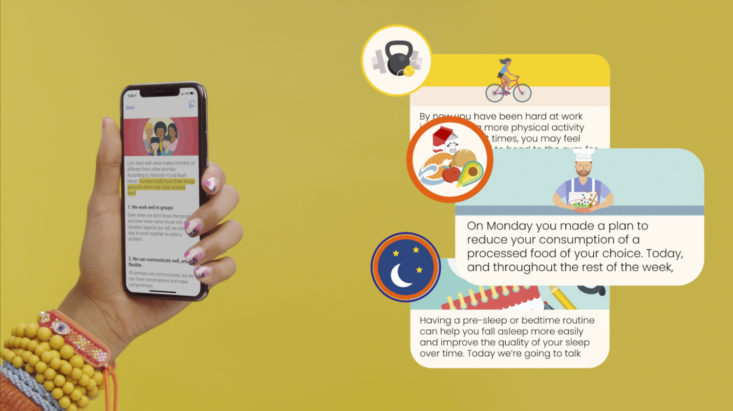
Noom Review
Everything You Need to Know About the Weight-Loss App
Pros
- Noom users can expect to lose 1-2 lbs per week
- It makes keeping track of what you're eating easy
- It helps build good habits
- It's a learning experience: Users learn why certain foods are healthier choices than others
- Notifications are an effective way to keep you on track toward your weight loss goals
- It approaches weight loss as a journey, taking a gentle approach with their messaging
- Interface makes it easy to use
Cons
- Can be difficult to remain interested and consistent
- Notifications can be bothersome
- Noom's sense of humor borders on cheesy
All About Noom
Noom is a psychologist-created weight loss app that is scientifically proven to create real, sustainable results. Noom’s curriculum is based on cognitive behavioral therapy (CBT), a goal-oriented psychotherapy treatment that addresses patterns of thinking and/or behavior. By drawing from this, Noom helps individuals identify the behavior behind existing habits. The app is designed to help users understand where they struggle and where they can make positive change. Coaches spend time addressing mindfulness as it relates to eating, physical activity, and general health — mindful choices, mindful eating, intention, and attention.
This app was sent to us at no cost for review. (Check out our review process post to learn more about how we review boxes.)

What We Love About Noom
When it comes to long-term weight loss, establishing healthy and sustainable eating habits is key. Diets and quick fixes may lead to short-term weight loss, but without true habit change, there’s a strong chance this success cannot be maintained in the long-run. This is the philosophy behind Noom's approach. It helped us build better habits which in turn led to making healthier decisions.
What to Expect From Noom
What kind of experts are behind Noom?
All of Noom’s programs are rooted in principles developed by psychologists, nutritionists, and other behavioral health specialists. Their curriculum is based on psychological therapy, particularly Cognitive Behavioral Therapy (CBT), to promote behavior change and allow users to achieve their physical and mental health goals. Programs are updated based on new peer-reviewed research and best practices for working with different populations, including diabetes prevention and weight loss.
Noom's coaches understand that losing weight is just as much a mental game as a physical one. There’s anxiety about changing routines, fear of failure, and depression about how it got to this point. They’ll serve as your partner and supportive mentor to help you attain your goals.
How long does it take to see results?
As people go through the program, result definitions change, and people have a different relationship with themselves. These psychological results shift users perspectives and approaches to themselves, their self care, and food.
How Noom works
Getting started with Noom is simple. After filling out a questionnaire, users receive a customized plan designed to address their health goals (like fitness, nutrition, weight loss and stress management). This isn't a one-size-fits-all approach, every program is unique. You'll answer a series of questions designed to create your customized program. Questions range from what your actual weight loss goal is to what your lifestyle is like.
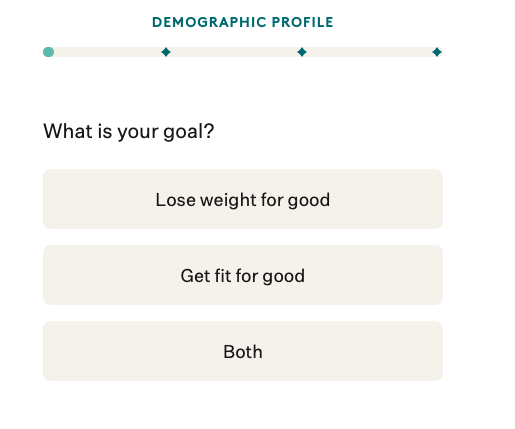
Using data from real users, Noom predicts how much weight you can lose if you follow your custom plan and adopt a healthy lifestyle. Users can expect to lose 1-2 lbs per week, although it is not guaranteed.
Once your program is created, you'll begin receiving daily notifications that encourage you to log your food and guide you toward your goal with encouraging words.
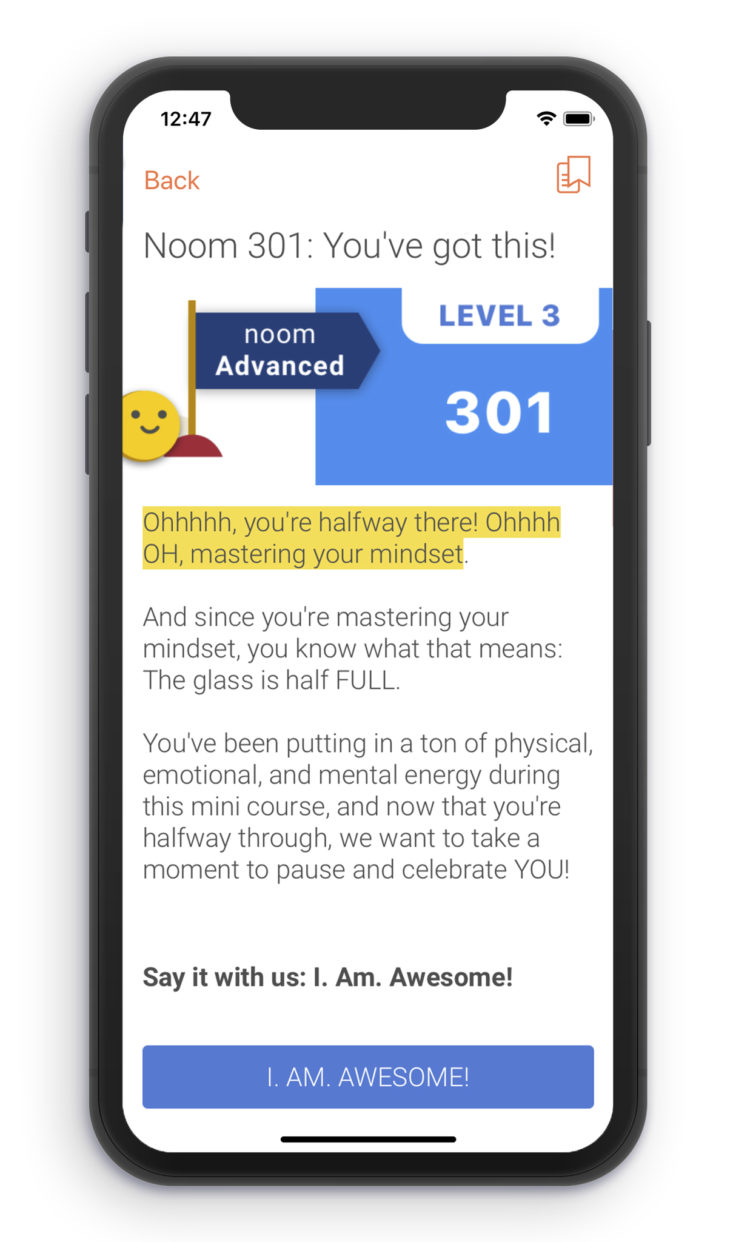
The Stages of Noom
Noom divides their weight loss program into four stages. Here's what they are:
Stage 1: Learning
The first step in creating healthy habits is understanding where you are now. While tracking your current routine, Noom will begin to establish the basics of good nutrition, exercise, and stress and sleep management, helping target the changes you need to make.
Stage 2: Practicing
Once you understand your current habits, it’s time to start changing them. To do this, Noom provides you with established goals, clear ways to reach those goals, and motivation and support to help with any issues along the way.
Stage 3: Advanced Learning
Now that you’ve started putting your learning into practice, we’re going to teach you some new ways to make your routine even stronger. Whether it’s new physical activities, or new ways of dealing with stress, your new healthier habits will grow even more routine.
Stage 4: Mastery
After weeks of learning and practicing for all the hurdles you may face, the final step is prepping you to reinforce your new habits for the long haul. By the end, you will be ready to face every situation with the knowledge and confidence that you’ll make the right choices.
As you move through the stages, Noom will tailor the program to best suit your progress.
How much does Noom cost?
Noom membership begins with a free two-week (14-day) trial. After your trial ends, a 2-month plan costs $99.
What else does it include?
Aside from your customized weight loss program, you'll also have access to:
- Organized skill building and practice
- Dedicated health coach
- Peer group support
- Easy to use food log to track daily calorie intake
- Thousands of healthy recipes for breakfasts, lunches, dinners (like vegetarian barley soup, corn chowder and lemony fennel salad)
Can Noom be paired with other programs (like an exercise program or diet program, etc.)?
Noom coaches help users set SMART goals — that stands for specific, measurable, attainable, relevant, and time-sensitive — in any area of their life, from starting a new exercise program to trying out a new way of eating. Noom knows there's not a single prescriptive routine that works for everyone, as every user is different and has different experiences and goals.
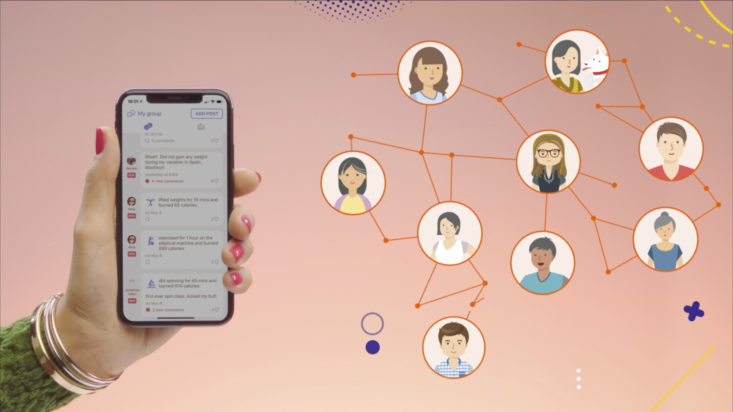
What Makes Noom Challenging
Noom’s coaching philosophy is customer-driven, allowing users to negotiate changes in behavior and food choices that also accounts for their actual needs and long-term health. This approach can give some users pause because they are responsible for goal-setting and the steps they want to take to get there, instead of being given a strict diet plan.
Possible issues with Noom
When it comes to goal setting and creating good habits, many people start off strong and then fall off, feel defeated, and continue in the same vicious cycle. According to Dr. Andreas Michaelides; Chief of Psychology and Head of Coaching at Noom, here's why some users struggle with sticking to their goals:
The goal is too broad. "When you set a large goal, it may seem exciting at first, but as time passes, this large goal may start to feel too intimidating or overwhelming to tackle. When setting new goals, you can set yourself up for success by breaking your goal down into smaller, more achievable goals. At Noom, coaches help users make their goals SMART — these are goals that are specific, measurable, attainable, relevant, and time-sensitive," Dr. Michaelides told us.
Identifying your why. "Even with smaller SMART goals, reflect on your “why” or big picture. For example, if your big picture goal is to be more present with your family, a smaller goal would be to practice being present in a specific activity for 10 minutes. This smaller SMART goal connects directly to your why and helps you make progress toward your larger goal," Michaelides said.
Not planning for obstacles. "When setting goals, it can be beneficial to take a minute and analyze what common issues you have experienced when setting these kinds of goals in the past. The most powerful, thorny, and defeating obstacles are the ones hidden from our view. This is why simply setting goals will not amount to instant change. We often need the input, support, and experiences of others to help see ourselves most clearly — and to have a safe space where we can talk through what we're doing, either with a Noom coach or with others making similar changes," Michaelides explained.
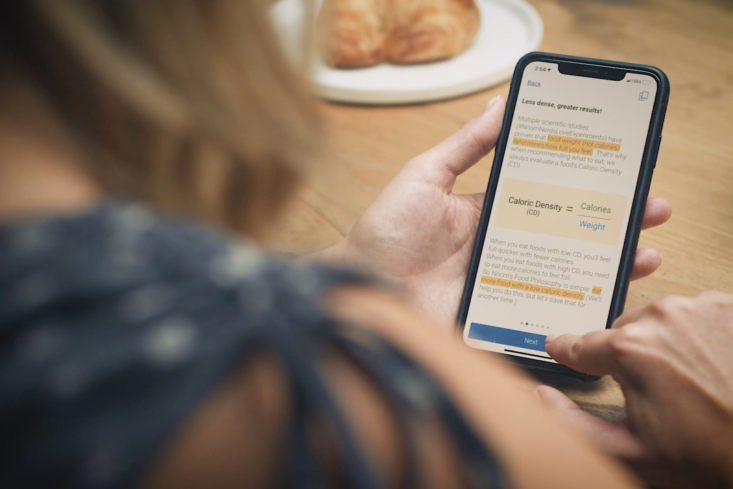
Is Noom worth it?
Noom really changed the way we view food. Tapping into the psychology aspect of weight loss was a game changer for the team members at MSA who used the app to help shed some pounds they'd put on during the pandemic. While some of us spent 2020 turning to comfort food, Noom helped identify what behaviors we should leave in the past while building new and better habits. Think about it this way: Noom got us thinking in all the right ways about things we never considered before like, how do you behave differently before a party? Or how do you behave before grocery shopping? We also learned a great deal about caloric density and why certain foods keep you satisfied for longer than others (like raisins versus grapes). Their approach to nutrition proves that Noom is no fad diet, it'll teach you healthy skills and habits you can implement now and maintain for the rest of your life.
Have you tried Noom? Head to the comments section and let us know!





Please do not enter your email address in the Name field or in the comment content. Your email address will not be published. Required fields are marked *. Remember to post with kindness and respect. Comments with offensive language, cruelness to others, etc will not be approved. See our full comment policy here.